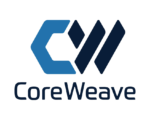TSMC (2330.TW) has pitched the idea of a joint venture involving Intel’s (INTC.O) foundry division to major U.S. chip designers, including Nvidia (NVDA.O), Advanced Micro Devices (AMD.O), and Broadcom (AVGO.O), according to sources familiar with the discussions. Under the proposal, TSMC, the world’s leading contract chipmaker, would oversee Intel’s foundry operations, which focus on manufacturing chips tailored to customer needs, but TSMC would retain no more than 50% ownership.
The proposal has been discussed with several other firms as well, including Qualcomm (QCOM.O), as part of TSMC’s efforts to partner with chip designers. The discussions are still in their early stages, and any potential deal would require approval from the U.S. government, particularly under the administration of President Donald Trump, who has shown interest in helping Intel recover from its financial struggles. Trump is particularly invested in boosting American manufacturing and supporting companies like Intel in remaining U.S.-owned.
Intel, which reported an $18.8 billion net loss for 2024, has seen a drastic decline in its stock price over the past year. As of December 31, the book value of Intel’s foundry division’s property and plant equipment stood at $108 billion. The company’s recent struggles have pushed its board members to consider various strategic moves, including partnering with TSMC for its foundry operations.
Despite some internal opposition, Intel’s board members have expressed support for exploring a joint venture with TSMC, with Intel’s executives holding different views on the matter. Intel’s foundry division, once a crucial part of Intel’s strategy under former CEO Pat Gelsinger, is now central to the company’s efforts to return to profitability, even as Gelsinger was replaced by interim co-CEOs in December.
TSMC’s push for a joint venture is complicated by the significant differences in manufacturing processes and technologies between the two companies. Intel and TSMC currently employ distinct chipmaking methods, which could pose challenges in aligning operations. Intel has previously partnered with Taiwan’s UMC (2303.TW) and Israel’s Tower Semiconductor (TSEM.TA), offering some precedent for potential collaboration, but the specifics of how such a partnership could function remain uncertain, especially regarding the sharing of trade secrets.
While TSMC’s interest is to involve Intel’s advanced manufacturing customers in the venture, discussions have also centered around Intel’s 18A manufacturing process, a key area of contention in the negotiations. Intel executives have claimed that its 18A technology surpasses TSMC’s 2-nanometer process, with Nvidia and Broadcom already testing Intel’s manufacturing capabilities, alongside AMD exploring the potential of Intel’s processes for its chips.















